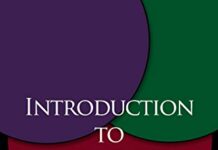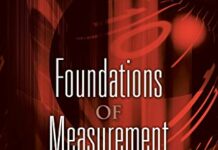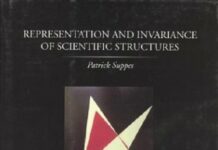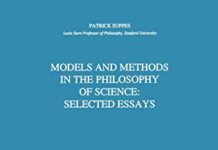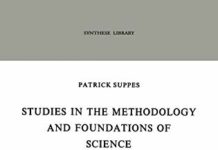
Ebook Info
- Published: 2012
- Number of pages: 356 pages
- Format: PDF
- File Size: 5.33 MB
- Authors: Patrick Suppes
Description
One of the most pressingproblems of mathematics over the last hundred years has been the question: What is a number? One of the most impressive answers has been the axiomatic development of set theory. The question raised is: “Exactly what assumptions, beyond those of elementary logic, are required as a basis for modern mathematics?” Answering this question by means of the Zermelo-Fraenkel system, Professor Suppes’ coverage is the best treatment of axiomatic set theory for the mathematics student on the upper undergraduate or graduate level. The opening chapter covers the basic paradoxes and the history of set theory and provides a motivation for the study. The second and third chapters cover the basic definitions and axioms and the theory of relations and functions. Beginning with the fourth chapter, equipollence, finite sets and cardinal numbers are dealt with. Chapter five continues the development with finite ordinals and denumerable sets. Chapter six, on rational numbers and real numbers, has been arranged so that it can be omitted without loss of continuity. In chapter seven, transfinite induction and ordinal arithmetic are introduced and the system of axioms is revised. The final chapter deals with the axiom of choice. Throughout, emphasis is on axioms and theorems; proofs are informal. Exercises supplement the text. Much coverage is given to intuitive ideas as well as to comparative development of other systems of set theory. Although a degree of mathematical sophistication is necessary, especially for the final two chapters, no previous work in mathematical logic or set theory is required. For the student of mathematics, set theory is necessary for the proper understanding of the foundations of mathematics. Professor Suppes in Axiomatic Set Theory provides a very clear and well-developed approach. For those with more than a classroom interest in set theory, the historical references and the coverage of the rationale behind the axioms will provide a strong background to the major developments in the field. 1960 edition.
User’s Reviews
Reviews from Amazon users which were colected at the time this book was published on the website:
⭐Not sure if sarcastic or algorithm that deemed me to be autistic. Amazon once recommended twelve books to me. All to whom the subject matter was set theory. By which way a purchase was made by me. Upon reading first few page. Fundamental change to world view
⭐The author has done an admirable job of presenting a complex and very important topic that is often glossed over. The axiom of choice and its equivalent known as Zorn’s lemma is used time and time again in modern mathematics. This comes later in the book. The author begins with the Axiom Schema of Abstraction and Russel’s paradox whereby one considers the set of all sets that are not members of themselves and one quickly arrives at a contradiction. The Axiom schema of abstraction is the source of the problem whereby one considers the set of all objects satisfying some property. This is replaced by the Axiom Schema of Separation (introduced by Zermelo 1908) to solve this paradox. The book requires very careful reading particularly in the early chapters. Everything here is complete but some of these ideas are complex . More and more axioms are introduced as more operations on sets are introduced that intuitively should also be sets and that is the prime purpose of introducing these axioms. I mention as an example the Axiom schema of Replacement whereby a set can be constructed from another set and a mapping function. Later in the book Cardinal numbers are introduced. After this Ordinal numbers are introduced. There are many results here. Once the Axiom of Choice is introduced then Transfinite induction is introduced and Zorn’s lemma is introduced. As stated earlier these ideas are very important in modern mathematics. I would prefer if the author had spent more time explaining how Cardinal numbers are a special type of Ordinal number and going through things just a little more slowly in that part of the book. Of course the reader may not have time to read and understand in detail every proof given or supply their own proof but it is enough to appreciate the depth and ingenuity of the axioms and why they were introduced in the first place. In summary an excellent book on a topic that is not so easily accessible and deals with the very foundations of logic and of mathematics.
⭐This is a great (historical) discussion of axiomatic set theory. Suppes published this book in 1960 with all that that implies. Notation is old style and takes some getting used to. I’m not a set theorist but I suspect much work has been done over the last 60 years and today set theory probably doesn’t look like it did to Professor Suppes.Nevertheless the book is a classic and should be in every mathematician’s library.
⭐This book is exactly what I was looking for to gain a deeper understanding of set theory.
⭐This book is correct to solve all the mysteries about paradoxes in set theory. This is its main contribution.
⭐This book is a basic reading on the Set Theory field. It works as an introductory and reference text, with a clear and concise style and a precise logic sequence on its exposition and development of contents. After reading it, I started to focus on more specific topics as Axiom of Choice and Banach-Tarski paradox, and I felt that it has prepared me to go further in my Math studies.
⭐Item as described and great delivery time
⭐Totalmente recomendable
⭐
⭐This is the book that Halmos cites in his Naive Set Theory. It is an excellent survey. There is a chapter on real numbers which can usefully read alongside Landau’s Foundations of Analysis.
⭐a good book about set theory
⭐Awesome, classic book by one of the most renowned mathematicians specialized on the subject. However, the binding and quality of the book is below gargbage. A couple of pages aren’t even printed out in their entirety.Being an economically convenient book is not an excuse for presenting such low quality. I’m vert disappointed in Dover this time.
⭐Estado de conservação “como novo” real, sem rasgos, dobras, ou nada do gênero. Exatamente conforme o prometido. Sobre o conteúdo, esse é o livro recomendo pelo Halmos na introdução do Teoria Ingênua para aqueles que querem conhecer a axiomática da teoria dos conjuntos; já estou lendo e me parece ser bom!
⭐
⭐It’s really difficult to share the overwhelming enthousiasm shown in the other reviews : the author’s treatment of functions and of recursive definitions is a pure indigestion… One wonders what beautiful book it could have been if written by true didactically-talented authors such as Gauss, Hardy, Apostol, Tarski, Coxeter, Courant, Kline, Greenberg, Russell (except for the Principia, his crowning example of unreadable masterpiece), Quine, Smullyan…I’m painfully trying to get to the end of Suppes’s cascade of definitions, theorems, definitions… requiring just as much of a cascade of annotations to clarify his text !On the thin positive side, Suppes’s book is a little better than another, highly constipated, book on the same subject i.e. Potter’s “Set theory and its philosophy”…
Keywords
Free Download Axiomatic Set Theory (Dover Books on Mathematics) in PDF format
Axiomatic Set Theory (Dover Books on Mathematics) PDF Free Download
Download Axiomatic Set Theory (Dover Books on Mathematics) 2012 PDF Free
Axiomatic Set Theory (Dover Books on Mathematics) 2012 PDF Free Download
Download Axiomatic Set Theory (Dover Books on Mathematics) PDF
Free Download Ebook Axiomatic Set Theory (Dover Books on Mathematics)
